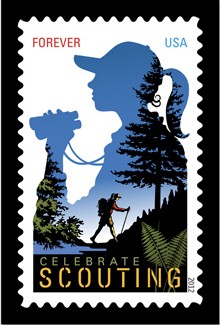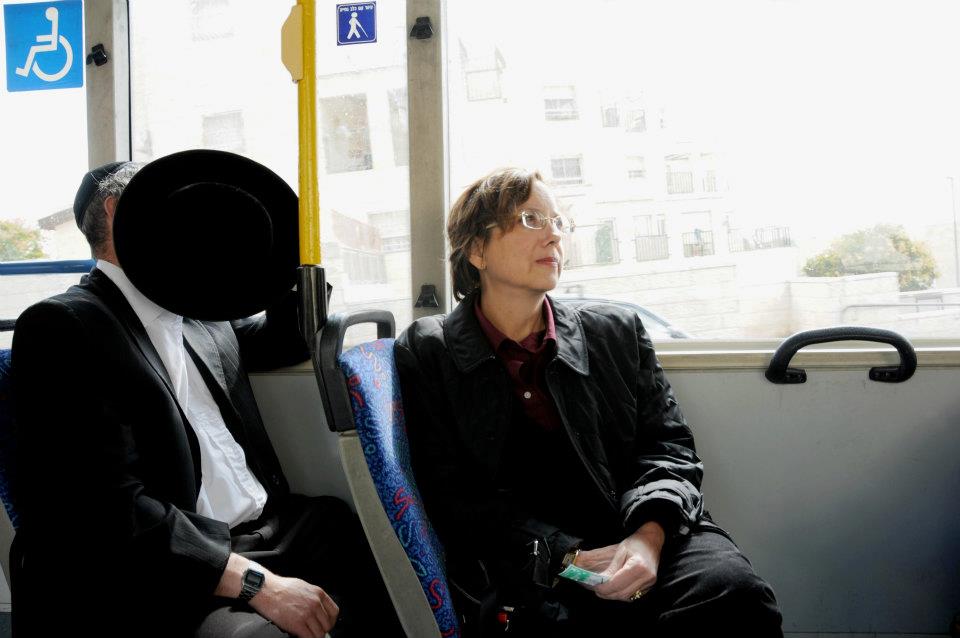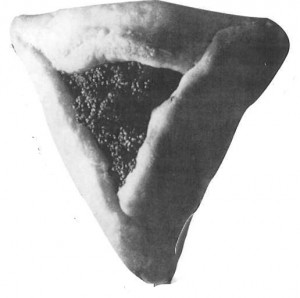Author Archives: admin
March 13, 2013 by admin
“Be Prepared” To Protest The Boy Scouts’ Anti-Gay Power Play
 I guess I can’t really take any personal credit for this, but I’m gratified that a chorus of protest, including mine, has prompted the Boy Scouts of America to re-evaluate its policy banning participation by gays and lesbians. (The Girl Scouts have always had a policy of non-discrimination.)
I guess I can’t really take any personal credit for this, but I’m gratified that a chorus of protest, including mine, has prompted the Boy Scouts of America to re-evaluate its policy banning participation by gays and lesbians. (The Girl Scouts have always had a policy of non-discrimination.)
After re-affirming the exclusionary policy as recently as last summer, the BSA announced in January that it may change the rule so that each local unit could decide whether to admit homosexual leaders and scouts. This proposal triggered so much heated debate — within and outside of scouting – that the organization tabled the matter until its next meeting, in May.
It will be interesting to see whether the families who left scouting in response to the BSA’s anti-gay policy would find this new approach to be acceptable. I don’t. When my husband and I enrolled our seven-year-old in Cub Scouts last year, we knew the BSA had a reputation for being homophobic, but we hadn’t realized it was actually written into the organization’s by-laws. We discovered it when the anti-gay policy was re-affirmed last summer, and we left scouting at that time. (Lilith, Winter 2012-2013)
I saw it as a social justice issue that was closely tied to my identity as a Jew. I was especially disappointed that with more than 160 Boy Scout and Cub Scout groups affiliated with Jewish organizations, there wasn’t a bigger protest from Jewish scouting leaders. I think that’s finally starting to change. According to an article in The Jewish Week, officials of the National Jewish Committee on Scouting, which serves as an advisory committee to the Boy Scouts of America, took a vote of their regional chairs and found overwhelming support for an end to the ban on homosexuals in scouting. Members of the committee will push the BSA to change its policy, the article said.
- 2 Comments
May 7, 2012 by admin
PAULA HYMAN (1946-2011) At the Center of Change

Paula Hyman, pictured here with her daughter Judith Rosenbaum. Photo by Amy Stone.
At the time of her death in December, Paula Hyman was the Lucy Moses Professor of Modern Jewish History at Yale University. She had been the first female dean of the Albert A. List College of the Jewish Theological Seminary, the first woman president of the American Academy for Jewish Research, and co-founder of of the germinal Jewish feminist group of the 1970s, Ezrat Nashim. While still a graduate student, she authored what may have been the first social history of Jewish women, The Jewish Woman in America [1976], and then proceeded to transform the way that Jewish scholars think of such basic historical paradigms as assimilation and acculturation by viewing these phenomena through the lens of gender.
Most of the Jewish girls born in America today will take it for granted that women can be rabbis, count in a minyan, and read from the Torah. And Jewish historians being trained today are called to task when the do not take gender into account. Paula Hyman was at the forefront of the religious and intellectual struggles that generated these changes. Her influence extended both into the academy and far beyond it, affecting the lives of Jewish females in schools and congregations in ways of which many are still unaware.
The reflections that follow give some glimpses into her legacy, and the extraordinary ways in which she shaped the Jewish feminist world we live in today.
Read more in a free download from Lilith’s Spring 2012 issue.
- No Comments
February 14, 2012 by admin
Women’s Roundtable Podcast: Abortion in Israel
Here’s the latest from the Women’s Roundtable Podcast, with Lilith editor in chief Susan Weidman Schneider, Lilith assistant editor Sonia Isard, and the Forward’s Naomi Zeveloff and Gabrielle Birkner. In this installment, we take a look at abortion in Israel and the ways in which Jewish women are shaping American politics. Plus–the ladies tackle the topic of “what Jewish feminism means to me.”
Join the conversation in the comments section below!
- No Comments
November 15, 2011 by admin
Riding the Buses in Jerusalem
Cross-posted with The NCJW Insider.

Photo Courtesy of NCJW
I am writing from Jerusalem where I am on a study tour with 23 women from the National Council of Jewish Women. We are here visiting some of the organizations we fund through our Israel Granting Program and also are meeting with a variety of people to get updates on the social, political, and economic issues facing the modern State of Israel. One issue I never quite thought I would experience in 2011 is bus segregation. No, I am not referring to blacks and whites because, after all, this is not 1960 in Mississippi. I am referring to gender segregation of men and women on buses with routes originating from the predominately Orthodox neighborhood of Ramat Shlomo in Jerusalem. Today, we rode the buses to experience firsthand what it is like to be a woman and assume you must “go to the back of the bus” when you board bus #56 or #40.
This now illegal activity started in 1997 when public transport companies began to operate special bus lines for the Haredi public, starting with two lines in Jerusalem and Bnei Barak. Called “Mehadrin” (extra kosher) lines, women would board the bus through the rear door and men would board through the front door. Women who objected to these rules would be subjected to harassment and intimidation and, in some cases, physical violence. The Israel Reform Action Center (IRAC) began to take action on this subject in 2001 and NCJW followed soon after. During a hearing on the case in January 2008, the Israeli Supreme Court criticized the manner in which gender segregation was being carried out on the buses and instructed the Ministry of Transportation to appoint a committee to study the matter. The Committee submitted its conclusions in October 2009 and found that bus routes applying gender segregation were unlawful given existing laws of the State of Israel; however, “segregation” was not defined and no enforcement mechanisms were put in place. The court has since ruled that signs must be placed in buses stating: “Due to Supreme Court ruling 47607 people can sit anywhere they want on the bus.”
- 1 Comment
September 26, 2011 by admin
Sneak Peek! A Reconsideration of Jewish Sororities

Remember the opening scene of Legally Blonde? Or the Saturday Night Live salutation “Delta, Delta, Delta, can I help ya, help ya, help ya?” To many observers, sororities look like the embodiment of values you’d love to hate – elitism, conformity, traditionalism, and perhaps even “inauthentic” or “superficial” expressions of Jewish identity. Cinematic representations aside, there’s an alternative narrative. Here’s a tip: watch for a hidden proto-feminist agenda in Jewish sorority life. Read the rest here!
- 2 Comments
July 14, 2011 by admin
Being Ima on and off the Bima
Cross-posted with Ima (on and off) the Bima.
Last night, I noticed a tweet from Rabbi Jason Miller, sharing with me an article written on the Forward’s Sisterhood blog.
I read it at about 5am, while nursing the baby. A little ironic, no?
It struck me particularly hard, since I have had a little bit of a difficult week in terms of balance. Let me explain.

Note the camp attire (flip flops), baby sling, and tallit. Just another day as the ima on the bima...well, not so much bima at camp. More like tree stump!
I’m currently serving on faculty at camp, as you may know. With me at camp are my husband and three children (the oldest is a camper, so I’m not only not responsible for him, I don’t even get to see him very much!), and we are accompanied by a teenage babysitter. The babysitter generally shepherds the two older kids to their activities, while my dear husband spends his time with the baby. Often, the baby accompanies me to programming as well, since he likes very much to be the center of attention! Camp is a great place for my family – everyone has something that they enjoy doing, and we fall into a nice routine of sharing our lives with our friends at camp.
For various reasons, my husband kindly agreed to go along on a 3 day camping trip with one of the older units. He left early Monday morning. On Monday, my babysitter started to feel a little ill and began to run a fever…so she went home, ideally just overnight, to speed up her recuperation (she is fine and will be back soon, I hope!). So…I was left all alone with my kids AND my responsibilities to camp. So far, so good. I’ve weathered this minor storm, my friends have helped out and pitched in, and it’s been fine. I am definitely looking forward to both of them returning to share the work, but I am not overly upset about how this has gone. But it’s definitely on my mind, making sure that everyone gets what they need from me.
- No Comments
April 28, 2011 by admin
Women's Roundtable Podcast: Fashion and Feminist Rituals
Here’s the latest from the Women’s Roundtable Podcast, with Lilith editor in chief Susan Weidman Schneider, Lilith assistant editor Sonia Isard, and the Forward’s Debra Nussbaum Cohen and Gabrielle Birkner. In this installment, we take a look at the importance of fashion to Jewish women today, and how Passover rituals are connected to feminist consciousness. Join the conversation in the comments section below!
- 1 Comment
March 17, 2011 by admin
Sisters in Arms
Elisa Albert, author of The Book of Dahlia and How This Night is Different, writes for Tablet Magazine about how “playing the defiant Vashti in a day school Purim play awakened [her] inner feminist.”
A couple of thousand years after Haman was sent to his death for trying to persuade King Ahasuerus to execute all the Jews in his kingdom, a motley group of fifth- and sixth-graders at Temple Emanuel Community Day School of Beverly Hills (motto: “Living Judaism!”) pulled out all the stops on a Purim musical revue spectacular.
We all wanted to be Esther, of course, the heroic, beautiful, self-sacrificing beloved of the King. The ingénue savior of the Jews, and so thin from all her fasting! She was going to get to wear a dirndl and sing a re-lyricized “My Favorite Things.” Second choice would have been to play a member of Esther’s harem, biblical pole-dancers with veils, MC Hammer pants, exposed midriffs, sequins. Ahasuerus, surrounded by his minions and ogling a parade of bachelorettes, was given to breaking the fourth wall, winking at the audience, and exclaiming, a la Mel Brooks, “It’s good to be the king!”
I was cast as Vashti and was, at best, ambivalent about it. She was the shrew. The cast-off first wife, a mere footnote to the story of Esther’s bravery and the salvation of the Jewish people. My costume was a modest polyester gown and my big number was “I’m Gonna Wash That King Right Out of My Hair.” I was last seen on stage protesting the beauty pageant, pacing back and forth downstage, alone, with a large sign that read WOMEN UNITE!
Keep reading here.
Related: ‘Commentary’: Feminists Are Ruining Purim
- No Comments
March 15, 2011 by admin
The Whole Megillah–Lilith Style!
 And now, for your reading pleasure, a new way of thinking about Purim from Lilith’s senior editor, Rabbi Susan Schnur, in a four part series:
And now, for your reading pleasure, a new way of thinking about Purim from Lilith’s senior editor, Rabbi Susan Schnur, in a four part series:
Our [Meaning Women’s] Book-of-Esther Problem
From Prehistoric Cave Art to Your Cookie Pan: Tracing the Hamentacsh Herstory
The Womantasch Triangle: Vashti, Esther and Carol Gilligan (A Developmental Look)
The Once and Future Womantasch: Celebrating Purim’s Full Moon as “Holy Body Day”
Enjoy, and share your own Purim reflections below.
The Lilith Blog is brought to you with the generous support of our donors.
- 5 Comments
February 28, 2011 by admin
A Look Back on Black History Month
 As we come to the end of Black History Month, let’s take a look back at some of Lilith’s writings on the topic.
As we come to the end of Black History Month, let’s take a look back at some of Lilith’s writings on the topic.
Fall 1996: “Are You Black or Are You Jewish?” Resisting the Identity Challenge
by Sarah Blustain
The children of those black-Jewish marriages forged in the halcyon days of the 60’s Civil Rights movement have come of age. They talk here about their Jewish mothers, their pain at having to choose an identity, and the confusion they feel about a society that denies them their double birthright.
Fall 1999: Unsung Heroines of the ‘60s: Jewish Women Who Went South
by Debra L. Schultz
Women in the civil rights movement integrated bus terminals, taught in Freedom Schools, registered black voters and served time in Southern jails. Now they talk frankly about the danger, their mothers’ reactions, and what in their Jewish consciousness propelled them.
Winter 2002: Jewish Girls and African-American Nannies
Lilith asked readers to dig deep, for the first time, into these experiences. The results are stories of love and complexity. In these pages grown-up Jewish daughters begin to think through the lessons, the gratitude and the guilt of these intensely intimate dyads. We also listen to three nannies on the other side of these relationships.
- No Comments
 Please wait...
Please wait...